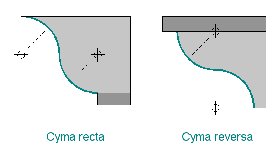[From the glory days of the Internet]
Date:Fri, 21 Mar 1997
HERMENEUTICS IN EVERYDAY LIFEby Tim Perry
Durham University.
Suppose you're traveling to work and you see a stop sign. What do you
do? That depends on how you exegete the stop sign.
1. A postmodernist deconstructs the sign (knocks it over with his car),
ending forever the tyranny of the north-south traffic over the east-west
traffic.
2. Similarly, a Marxist refuses to stop because he sees the stop sign
as an instrument of class conflict. He concludes that the bourgeois use
the north-south road and obstruct the progress of the workers in the
east-west road.
3. A serious and educated Catholic rolls through the intersection
because he believes he cannot understand the stop sign apart from its
interpretive community and tradition. Observing that the interpretive
community doesn't take it too seriously, he doesn't feel obligated to
take it too seriously either.
4. An average Catholic (or Orthodox or Coptic or Anglican or Methodist
or Presbyterian or whatever) doesn't bother to read the sign but he'll
stop if the car in front of him does.
5. A fundamentalist, taking the text very literally, stops at the stop
sign and waits for it to tell him to go.
6. A seminary-educated evangelical preacher might look up "STOP" in his
lexicons of English and discover that it can mean: 1) something which
prevents motion, such as a plug for a drain, or a block of wood that
prevents a door from closing; 2) a location where a train or bus lets
off passengers. The main point of his sermon the following Sunday on
this text is: when you see a stop sign, it is a place where traffic is
naturally clogged, so it is a good place to let off passengers from your
car.
7. An orthodox Jew does one of two things: a) Take another route to
work that doesn't have a stop sign so that he doesn't run the risk of
disobeying the Law; b) Stop at the sign, say "Blessed art thou, O Lord
our God, king of the universe, who hast given us thy commandment to
stop," wait 3 seconds according to his watch, and then proceed.
Incidently, the Talmud has the following comments on this passage:
R[abbi] Meir says: He who does not stop shall not live long. R. Hillel
says: Cursed is he who does not count to three before proceeding. R.
Simon ben Yudah says: Why three? Because the Holy One, blessed be He,
gave us the Law, the Prophets, and the Writings. R. ben Issac says:
Because of the three patriarchs. R. Yehuda says: Why bless the Lord at
a stop sign? Because it says, "Be still and know that I am God." R.
Hezekiel says: When Jephthah returned from defeating the Ammonites, the
Holy One, blessed be He, knew that a donkey would run out of the house
and overtake his daughter, but Jephthah did not stop at the stop sign,
and the donkey did not have time to come out. For this reason he saw
his daughter first and lost her. Thus he was judged for his
transgression at the stop sign. R. Gamaliel says: R. Hillel, when he
was a baby, never spoke a word, though his parents tried to teach him by
speaking and showing him the words on a scroll. One day his father was
driving through town and did not stop at the sign. Young Hillel
called out: "Stop, father!" In this way, he began reading and speaking
at the same time. Thus it is written: "Out of the mouths of babes."
R. ben Jacob says: Where did the stop sign come from? Out of the sky,
for it is written: "Forever, O Lord, your word is fixed in the
heavens." R. Ben Nathan says: Where were the stop signs created? On
the fourth day, for it is written: "Let them serve as signs." R.
Yeshuah says....[continues for three more pages]
8. A Lubavitcher rabbi does the same thing as an orthodox Jew, except
that he waits 10 seconds instead of 3. He also replaces his brake
lights with 1000 watt searchlights and connects his horn so that it is
activated whenever he touches the brake pedal. He also works out the
gematria of shin-tav-pey (S-T-(O)-P) and takes it to mean that the Rebbe
Schneersohn, of blessed memory, will be resurrected as the Messiah after
he has stopped at this intersection 780 times.
9. A scholar from the Jesus Seminar concludes that the passage "STOP"
undoubtably was never uttered by Jesus himself because being the
progressive Jew that He was, He would never have wanted to stifle
peoples' progress. Therefore, STOP must be a textual insertion
belonging entirely to stage III of the gospel tradition, when the church
was first confronted by traffic in its parking lot.
10. A NT scholar notices that there is no stop sign on Mark street but
there is one on Matthew and Luke streets, and concludes that the ones on
Luke and Matthew streets are both copied from a sign on a street no one
has ever seen called "Q" Street. There is an excellent 300 page
doctoral dissertation on the origin of these stop signs and the
differences between stop signs on Matthew and Luke street in the
scholar's commentary on the passage. There is an unfortunate omission
in the dissertation, however; it doesn't explain the meaning of the
text!
11. An OT scholar points out that there are a number of stylistic
differences between the first and second half of the passage "STOP."
For example, "ST" contains no enclosed areas and 5 line endings, whereas
"OP" contains two enclosed areas and only one line termination. He
concludes that the author for the second part is different from the
author of the first part and probably lived hundreds of years later.
Later scholars determine that the second half is itself actually written
by two separate authors beause of similar stylistic differences between
the "O" and the "P".
12. Another prominent OT scholar notes in his commentary that the stop
sign would fit better into the context three streets back.
(Unfortunately, he neglected to explain why in his commentary.) Clearly
it was moved to its present location by a later redactor. He thus
exegetes the intersection as though the sign were not there.
13. Because of the difficulties in interpretation, another OT scholar
amends the text, changing the "T" to "H". "SHOP" is much easier to
understand in context than "STOP" because of the multiplicity of stores
in the area. The textual corruption probably occurred because "SHOP" is
so similar to "STOP" on the sign several streets back, that it is a
natural mistake for a scribe to make. Thus the sign should be
interpreted to announce the existence of a shopping area. If this is
true, it could indicate that both meanings are valid, thus making the
thrust of the message "STOP (AND) SHOP."
14. A "prophetic" preacher notices that the square root of the sum of
the numeric representations of the letters S-T-O-P (sigma-tau-omicron-pi
in the Greek alphabet), multiplied by 40 (the number of testing), and
divided by four (the number of the world--north, south, east, and west),
equals 666. Therefore, he concludes that stop signs are the dreaded
"mark of the beast," a harbinger of divine judgment upon the world, and
must be avoided at all costs.






